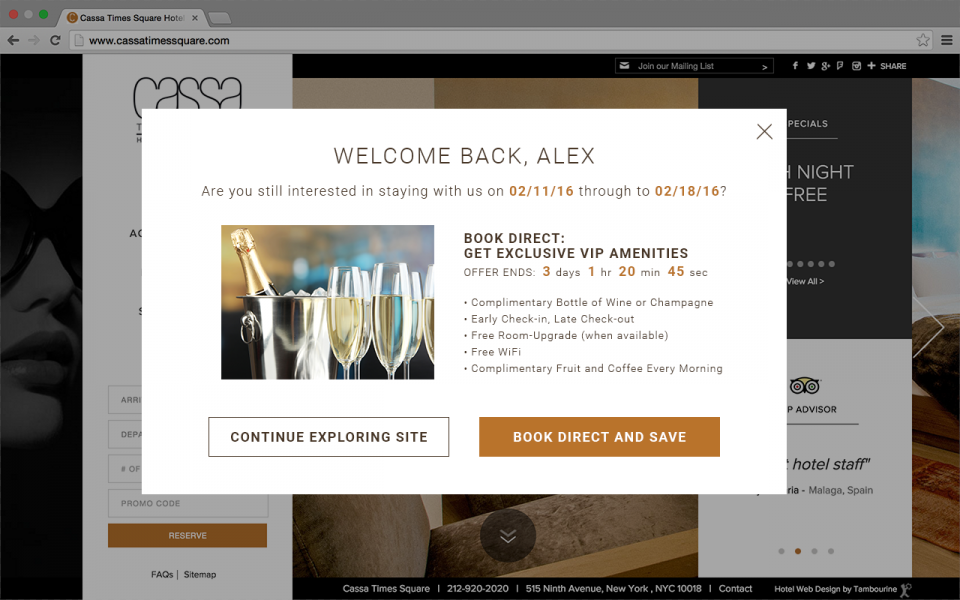
The guest’s road from your hotel marketing campaigns, to your website and finally to online booking is a delicate, razors’ edge journey filled with several opportunities for the customer to bounce, turn back, and never return.
However, many hoteliers assume a booking is guaranteed once a visitor is on the website and ready to buy. But, beware. There is a dangerous “chasm” between your hotel website and your booking engine, where potential guests can likely ‘fall off” if you’re not cautious.
Here are the most common ways to lose potential guests transitioning from your Website to your booking engine:
1. Lack of Personalization
Personalization is a big industry buzz word right now. But cutting through all the hype, the one place where personalization can truly make an immediate impact is on your direct website.
How?
When your hotel website and booking engine are integrated by one provider, personalized web experiences can be created instantly and dynamically. You can show gated and loyalty rates to recognized members of any ‘closed group’ your hotel wants to create.
Here are a few more examples:
• When a guest from Argentina visits your website and moves into the booking engine, your website can automatically pass the user’s location and localize room rates in the booking engine to the guest’s native currency.
• A past guest (“Alex” in this case) revisits your website after checking dates a week before. You can now present dynamic rate promos only available to loyal past guests. Check out this example from our client, Cassa Times Square NYC:
• Your website tracks user behavior and auto-configures the booking engine with images and messages relevant to that demographic (family vs business traveler).
2. A Slow Loading Booking Engine
It takes mere seconds to kill a booking. Research shows that 25% of consumers will leave a website if it takes more than four seconds to load. That figure jumps beyond 50% if your booking engine takes up to 10 seconds to load.
In a world of instant gratification and lightening-fast internet speed, guests expect every part of your hotel’s online experience to load immediately. Every moment of delay gives the customer more and more reason to abandon you in search of something better and faster.
Slow page loads and annoying delays are common when a customer plugs in their dates or a discount rate code into the booking engine. Don’t lose a hard-earned booking because of something as simple as speed.
Test your load times on different browsers and from mobile devices, which is especially important since many guests are now relying on their own cellular connections (non high-speed wifi) to make online purchases.
3. Inconsistent Experiences Between Website to Booking Engine
The best booking engines are the ones that go unnoticed by the guest. Being transferred someplace that looks and feels different to complete a transaction can cause guests to feel uneasy. This is why user experience (UX) is vital for online transactions.
Even the smallest of changes, like different fonts or different colors, can be jarring to your guests and chip away at the delicate trust and reliability that you worked so hard to establish. So, keep guest confidence high with a seamless transition and a consistent appearance.
A continuous, seamless customer experience is one of the major benefits of using one company for both your website and your booking engine. Customers will move smoothly from examining your guestrooms, looking at property photos and reading up on your amenities, to taking out their credit card and making a reservation.


